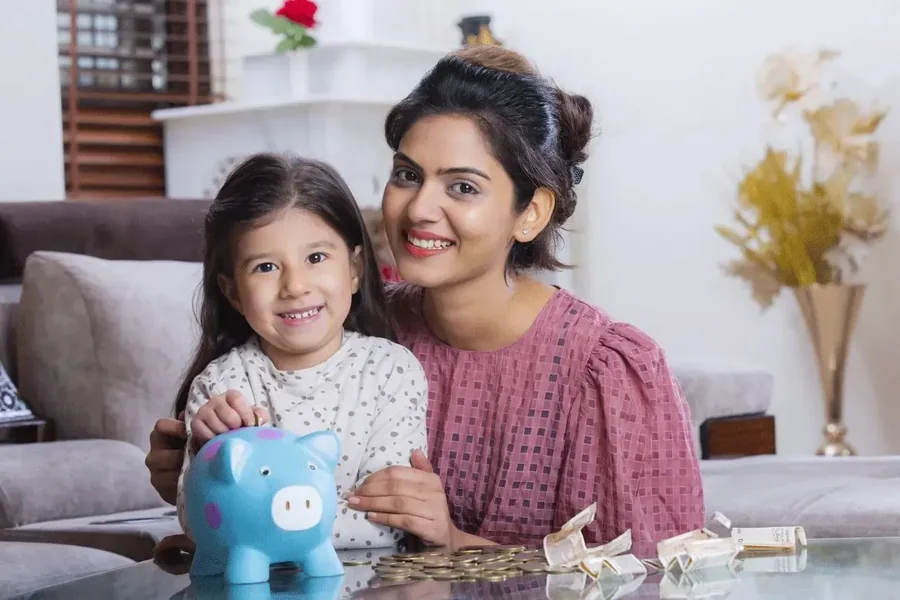A Fixed deposit is a financial instrument provided by banks or non-bank financial institutions, which are also known as term deposits. Here, investors can earn a higher interest rate than in a regular savings account at a predetermined rate. The rate of interest varies from one financial institution to another. Its tenure can vary, ranging from short-term tenures of 7-14 days to long tenures of 10 years.
If you are looking to secure your child’s financial future & want to select an appropriate Investment Plan, a fixed deposit for minors is considered the safest & reliable option, offering flexible returns, guaranteed returns, & capital protection.
Things to be considered while choosing the Right FD Scheme for your Child
Provided are the things that should be considered while choosing the right FD scheme for your child
-
Interest Rate
Compare interest rates offered by different banks & choose one that offers better returns.
-
Minimum Deposit Amount
Some of the banks require a minimum deposit amount; choose one that demands a lower amount.
-
Flexibility of Tenure
Opt for a tenure that best aligns with future financial obligations.
-
Premature Withdrawal
Assess the penalty amount applicable in cases of premature withdrawal.
-
Tax Implications
Assess the tax implications associated with investing funds in the fixed deposit.
Steps to Open a Fixed Deposit for your Child
Provided are the two ways to open a fixed deposit for your child:
-
Online Mode
Step 1: According to your choice & suitability, visit the respective bank’s or NBFC’s website to open a fixed deposit.
Step 2: Fill out the basic details, including name, contact information, & email address, to complete registration.
Step 3: Once registered, log in using the same ID.
Step 4: Look for the option that allows you to open a fixed deposit account.
Step 5: Additionally, input any additional information, such as principal amount, tenure, & nominee details, to process it further.
Step 6: Verify the entered details & proceed to make payment.
Step 7: Make an online payment for the principal amount via internet banking.
Step 8: Additionally, the receipt can be downloaded.
-
Offline Mode
Step 1: Visit your nearest bank or NBFC’s branch that best suits you.
Step 2: Look for the application form for a fixed deposit.
Step 3: Complete the application form with all the details & information.
Step 4: In case you do not hold any account with the bank, it also requires you to submit some extra documents to complete the KYC related to your identity & residential information.
Step 5: Next, you are required to submit the remaining documents necessary to open a fixed deposit account.
Step 6: Lastly, submit the duly filled form along with all relevant documents to the concerned representative of the bank.
Benefits of Investing in an FD for Minors
For parents who are looking for financial security for their children, opening a fixed deposit for minors is considered to be the Best Investment Plan for Child. This is because a fixed deposit offers flexibility, safety, & guaranteed returns, thereby providing reliability in providing financial security to fulfil your child’s requirements.
-
Assured returns
Fixed deposits offer guaranteed returns, providing assurance to the parents that investments will reap returns for children in future, hence are considered to be the safest investment plan.
-
Higher interest rate of FDs
Fixed deposits not only are considered to offer safe & guaranteed returns, but also offer better interest rates, making it a favourable choice for parents.
-
Online investment options
In today’s digital world, banks have also begun performing many functionalities online, including opening a fixed deposit. Hence, opening a fixed deposit online saves time & effort.
-
Low minimum deposit amount
A low minimum deposit amount option is also gaining popularity these days, which means that during times of inflation, saving becomes more challenging. Here, a low minimum deposit amount feature will help you invest in a fixed deposit for your children.
-
Flexible term
This plan offers flexibility in choosing the tenure, ranging from 1 year to 5 years, according to your objectives & preferences.
Some Tips for Maximising Returns & Children’s Future Planning
When investing in a fixed deposit for minors, opt for long-term planning, considering the following tips to maximise returns & future planning for your children:
-
Start early:
It is advisable to start investing at an early stage to ensure the availability of funds when needed. The longer the time period you leave your funds, the greater the scope for the funds to grow through the power of compounding.
-
Regular monitoring & reinvestment:
Keep monitoring for the maturity dates & consider the reinvestment to avail compounding benefits.
-
Tax implications:
Consider the tax implications of the interest received on the fixed deposit for your child & plan accordingly.
-
Opt for cumulative fixed deposits:
Opt for cumulative fixed deposits, as the payout received at the time of maturity under these investments is compounded yearly, hence offering a high rate of interest.
-
Automatic renewal:
By enabling auto-renewal, you can avoid missing out on your interests.
-
Use the Laddering strategy:
One should stagger the investments in multiple fixed deposits with different maturity periods rather than investing money in one fixed deposit plan. This technique offers a regular availability of funds, assuring liquidity & increasing the scope for reinvestment at higher interest rates.
Conclusion
A fixed deposit for a minor is an investment plan which offers financial security, guaranteed returns, flexible tenures with long-term benefits. It offers parents a sense of mental peace & assurance that they will receive funds when needed. With all its features, selecting a fixed deposit can turn out to be one of the best investment plans for a child for parents who consider financial security to be more important than risk. This provides secure & steady returns on the amount invested in a lump sum as principal & interest amount, which can be withdrawn at the time of maturity.

